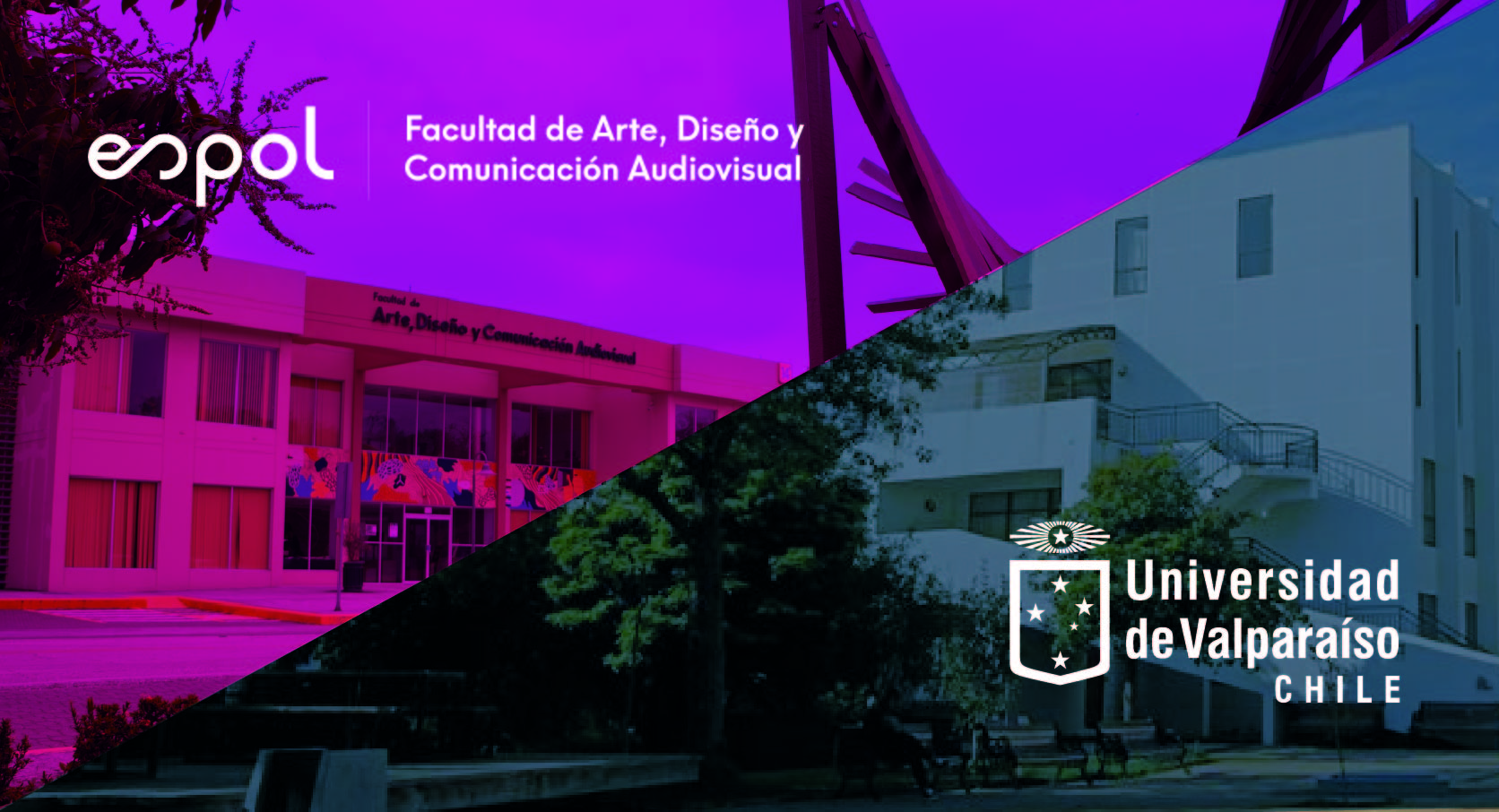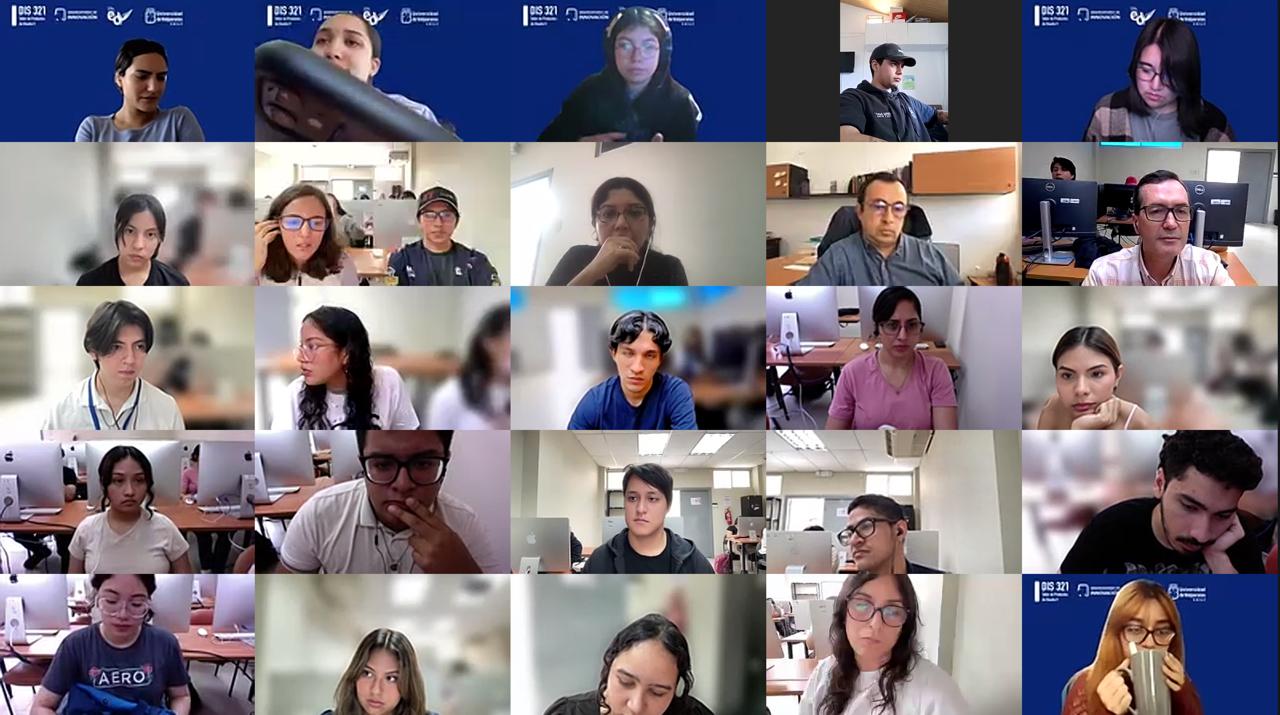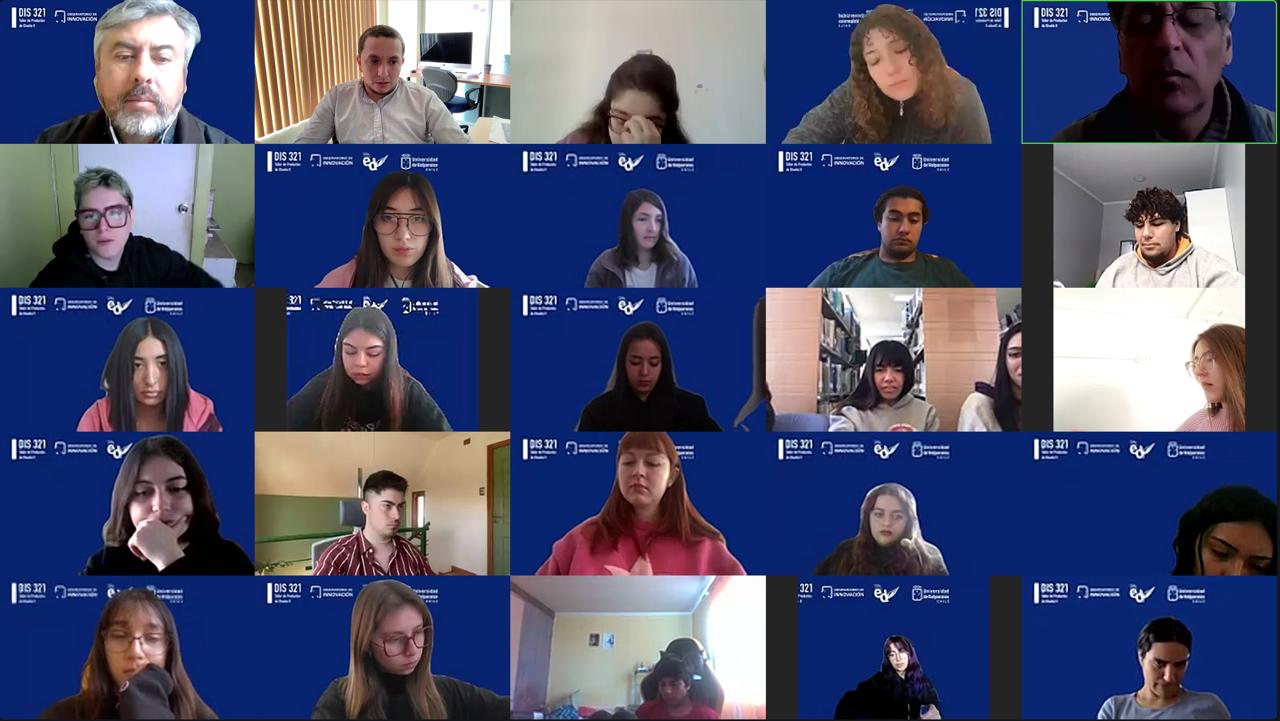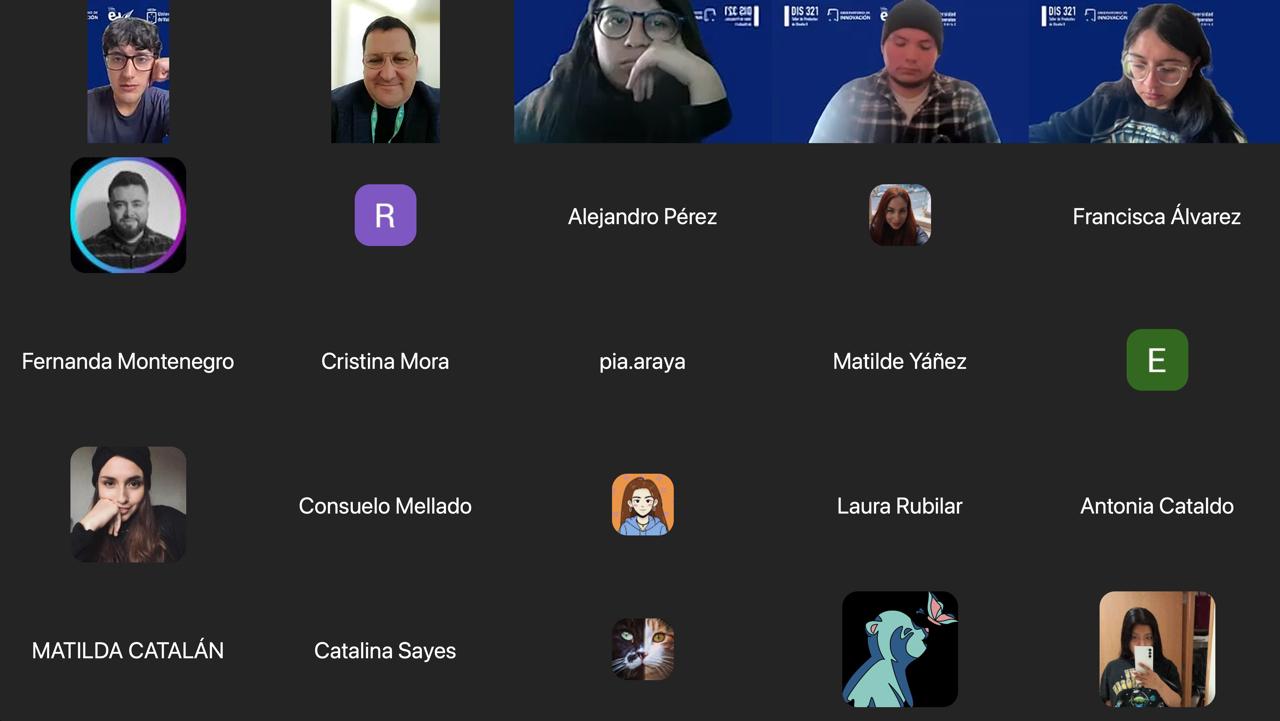
The Faculty of Art, Design and Audiovisual Communication (FADCOM) of ESPOL carried out an international pilot experience called International Design Workshop, in collaboration with the University of Valparaiso (UV) in Chile. This innovative project was carried out thanks to the coordination between professors Omar Acevedo, Ph.D from UV and Lourdes Pilay, Ph.D, from FADCOM, who replicated a previous experience of virtual international mobility developed by UV with Mexican universities.
For five months, FADCOM faculty members Paola Ulloa, Jimmy Cañizares and Lourdes Pilay prepared and planned the workshop. The team organized the logistics and methodology in collaboration with their Chilean counterparts, involving students from various subjects from both institutions. Around 75 FADCOM students participated closely in this international mobility experience.

The six-week workshop focused on the theme Neurodiversity and Workplace Inclusion: Designing the Frontier. Here, the “frontier” was understood as a metaphor that encompasses concepts of nation, territory, culture and the transition from academia to the professional world. During this time, participants developed projects through a methodology that included problem identification, research, conceptual analysis and the creation of final proposals.
The inaugural session was attended by authorities and professors from both universities. Alejandro Witt, Dean of the Faculty of Architecture; Carlos Lara Aspée, Vice Rector for Environmental Outreach; Master of Science. Oscar Acuña, director of the Design career; and professors PhD. Omar Acevedo and MSc. Álvaro Huirimilla. FADCOM was represented by MSc. Carlos González, deputy dean; Master of Science.

Ronald Villafuerte, mobility coordinator; Eng. Gonzalo Pizarro, manager of International Relations at ESPOL; and the teachers and students of the subjects involved. This initiative benefited approximately 100 students, strengthening ties between the two institutions and promoting joint research on shared social problems.
The experience positioned design as a strategic resource for addressing cross-cutting issues from a cultural, social, political and technological perspective. The collaborative work had a positive impact on students in Ecuador and Chile, demonstrating that design can transform and integrate diverse communities for an inclusive global future.

© Photography: Courtesy / Written by José Luis Castro
06/11/2024




